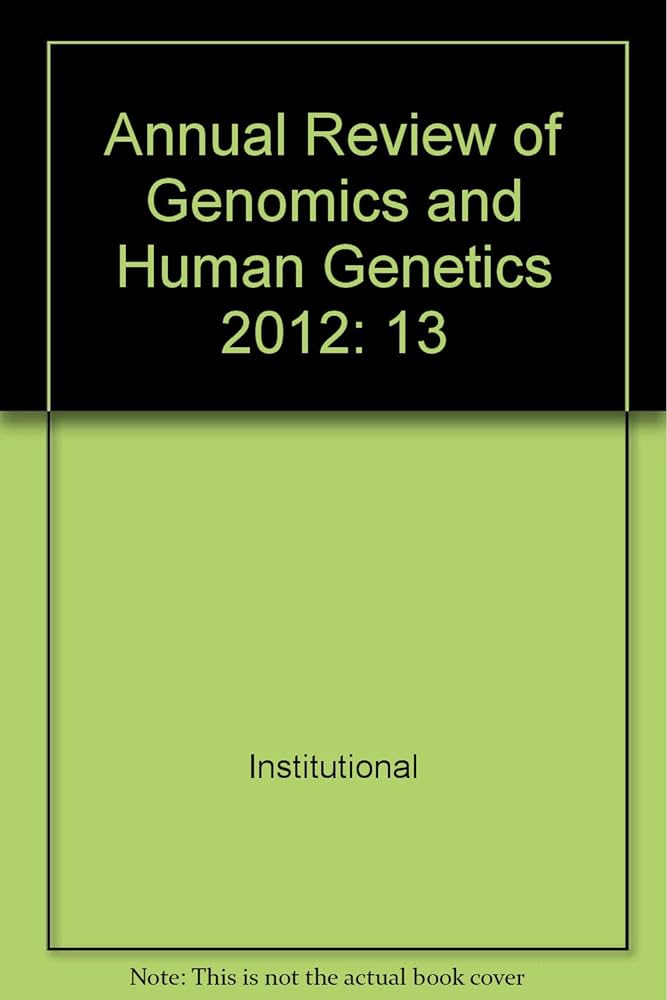面岬肱肌营养不良症的遗传学和表观遗传学。
IF 7.7
2区 生物学
Q1 GENETICS & HEREDITY
Annual review of genomics and human genetics
Pub Date : 2019-08-31
Epub Date: 2019-04-24
DOI:10.1146/annurev-genom-083118-014933
引用次数: 47
摘要
面岬-肱肌营养不良症(FSHD)是一种进行性肌营养不良症,所有年龄段的人都会患病,它为染色质调控的遗传和表观遗传机制之间复杂的相互作用提供了一个强大的模型。前列腺肥大症是由大卫星重复序列调节失调引起的,原因可能是重复序列的收缩或沉默蛋白的突变。这两种情况都会导致染色质松弛,在等位基因允许的情况下,骨骼肌中的 DUX4 基因会异常表达。DUX4 是一种先驱转录因子,它在人类早期发育过程中激活了基因表达程序,之后在大多数体细胞中沉默表达。当FSHD骨骼肌中的DUX4基因表达错误时,DUX4程序会导致肌肉病变。疾病基因座的表观遗传调节因子是FSHD特别有吸引力的治疗靶点,因为许多调节因子并不是基因组的全局修饰因子,改变它们的表达或活性就能纠正潜在的缺陷。本文章由计算机程序翻译,如有差异,请以英文原文为准。
The Genetics and Epigenetics of Facioscapulohumeral Muscular Dystrophy.
Facioscapulohumeral muscular dystrophy (FSHD), a progressive myopathy that afflicts individuals of all ages, provides a powerful model of the complex interplay between genetic and epigenetic mechanisms of chromatin regulation. FSHD is caused by dysregulation of a macrosatellite repeat, either by contraction of the repeat or by mutations in silencing proteins. Both cases lead to chromatin relaxation and, in the context of a permissive allele, aberrant expression of the DUX4 gene in skeletal muscle. DUX4 is a pioneer transcription factor that activates a program of gene expression during early human development, after which its expression is silenced in most somatic cells. When misexpressed in FSHD skeletal muscle, the DUX4 program leads to accumulated muscle pathology. Epigenetic regulators of the disease locus represent particularly attractive therapeutic targets for FSHD, as many are not global modifiers of the genome, and altering their expression or activity should allow correction of the underlying defect. Expected final online publication date for the Annual Review of Genomics and Human Genetics Volume 22 is August 30, 2019\. Please see http://www.annualreviews.org/page/journal/pubdates for revised estimates.
求助全文
通过发布文献求助,成功后即可免费获取论文全文。
去求助
来源期刊
CiteScore
14.90
自引率
1.10%
发文量
29
期刊介绍:
Since its inception in 2000, the Annual Review of Genomics and Human Genetics has been dedicated to showcasing significant developments in genomics as they pertain to human genetics and the human genome. The journal emphasizes genomic technology, genome structure and function, genetic modification, human variation and population genetics, human evolution, and various aspects of human genetic diseases, including individualized medicine.

 求助内容:
求助内容: 应助结果提醒方式:
应助结果提醒方式:


